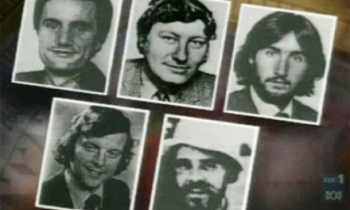CARTAGENA, Colombia: Press freedom in Latin America is being hurt by leftist governments' intolerance of criticism and a spate of drug mafia-ordered murders of journalists in Mexico, according to reports issued Saturday at a newspaper industry meeting.
In country reports presented to the InterAmerican Press Association, representatives from Uruguay, Ecuador, Venezuela and Bolivia said the governments of their countries had become especially hostile toward the press.
Mexico had an alarming number of deaths: seven journalists murdered since October, two disappearances and eight cases of reporters receiving death threats.
The United States' report decried the lack of a federal "shield" law that would prevent judges and prosecutors from obliging reporters to reveal sources they've pledged to protect. Thirty-one U.S. states have such laws.
"Today perhaps more than ever there is pressure for journalists to identify the people who talk with them — including when the information discussed in those conversations wasn't even published," Milton Coleman, deputy managing editor of The Washington Post, told the gathering.
The IAPA, whose members include more than 1,300 newspapers from Patagonia to Alaska, is holding a four-day semiannual meeting in this Caribbean city that ends Monday.
It is to be addressed by President Alvaro Uribe and Bill Gates and count with the participation of dignitaries including Nobel laureate Gabriel Garcia Marquez, who turned 80 this month.
Gonzalo Marroquin, president of the IAPA's press freedom commission, said press freedom has been deteriorating in a number of countries in the past year, especially where leftists have won election.
"In Venezuela, where I would say President Hugo Chavez's authoritarianism is absolute, and elsewhere where restrictions on the press are becoming more and more repressive, there is also an apparent tendency to try to limit access to information," he said.
"I don't think it's necessarily for ideological reasons but more because of what tends to happen to governments when they turn authoritarian," said Marroquin, editor of the newspaper Prensa Libre of Guatemala.
In Bolivia, President Evo Morales' government "doesn't appear comfortable" with press freedom and news reports critical of its actions are often called "part of a plot against its stability," that country's delegation said.
The report noted that Chavez's government has provided financial and technical support to Bolivia's state-owned TV network, and that Morales is in a campaign to open a chain of community radio stations.
In Uruguay, President Tabare Vazquez has accused various news media of conspiring through "immoral, injurious and untruthful" reports to question his competency, that country's report said.
And Ecuador's newly elected president, Rafael Correa, has branded his country's press "information mafias" in the service of "ousted political mafias."
Despite being the third most dangerous country for journalists over the past decade after Iraq and Russia, with 72 killed over the period according to the Brussels-based International News Safety Institute, Colombia did not lose a single journalist over the past six months.
Mexico, however, was a killing ground.
"I would said Mexico has become the country (in the Western Hemisphere) where it's most dangerous to be a journalist today," said Marroquin.









